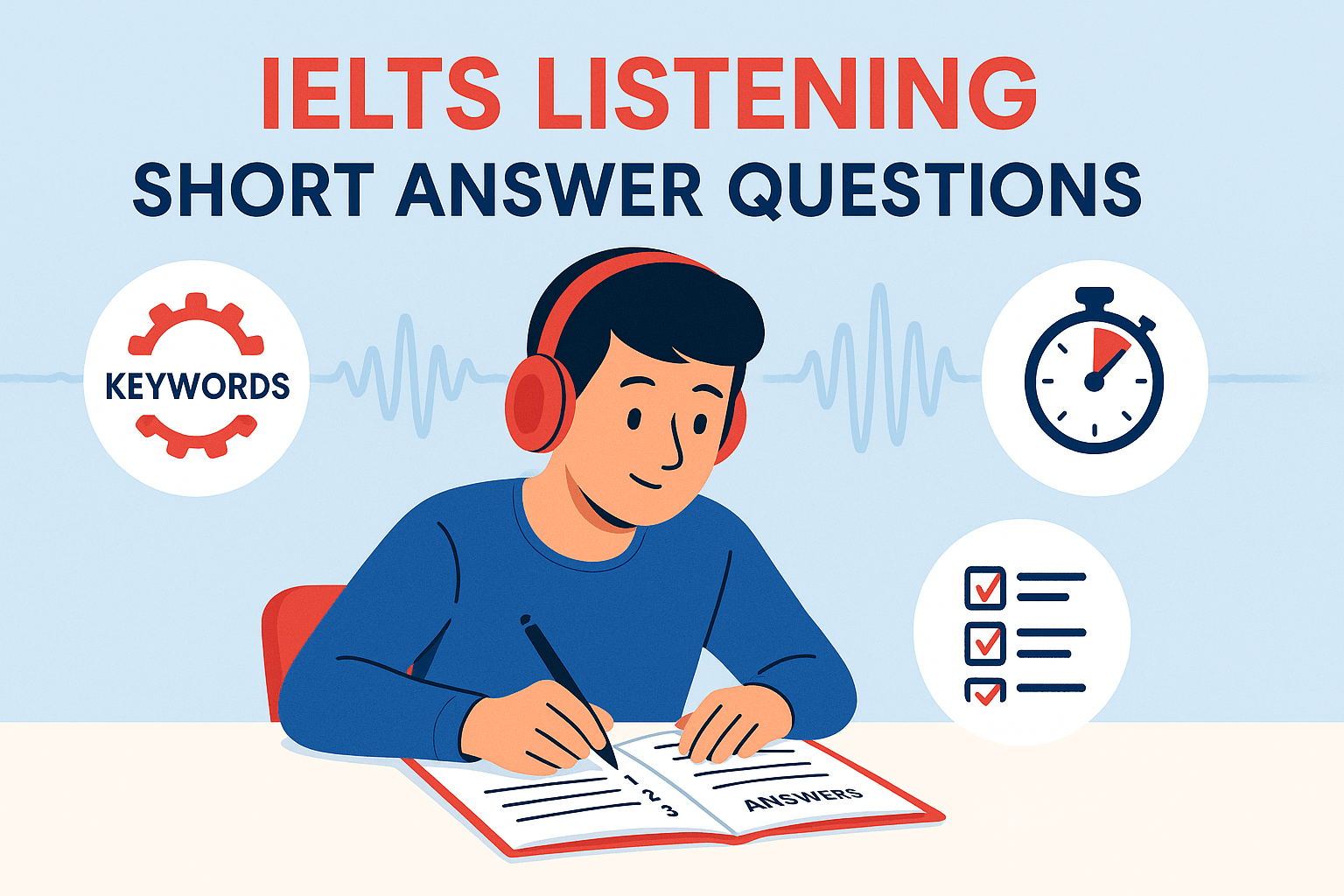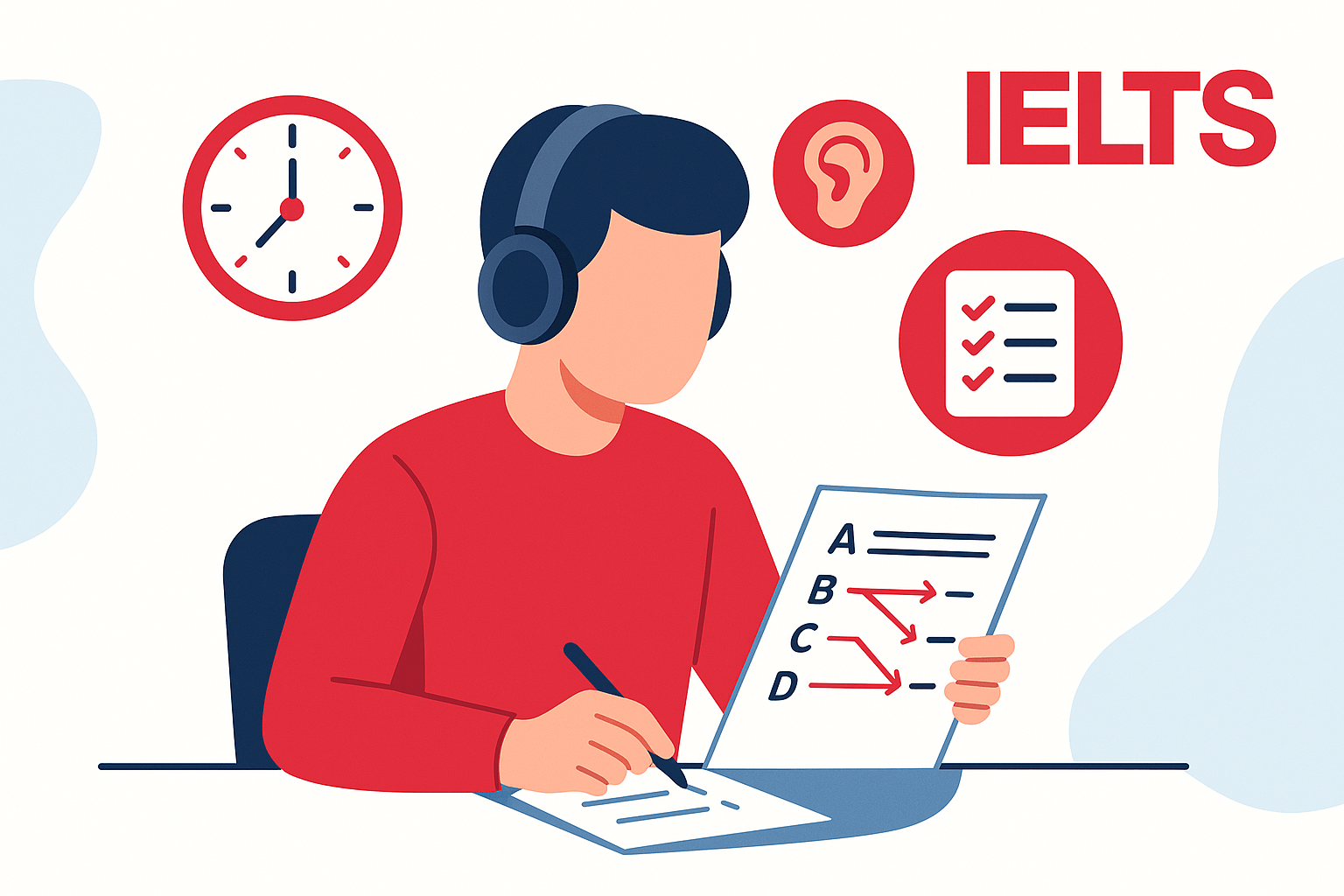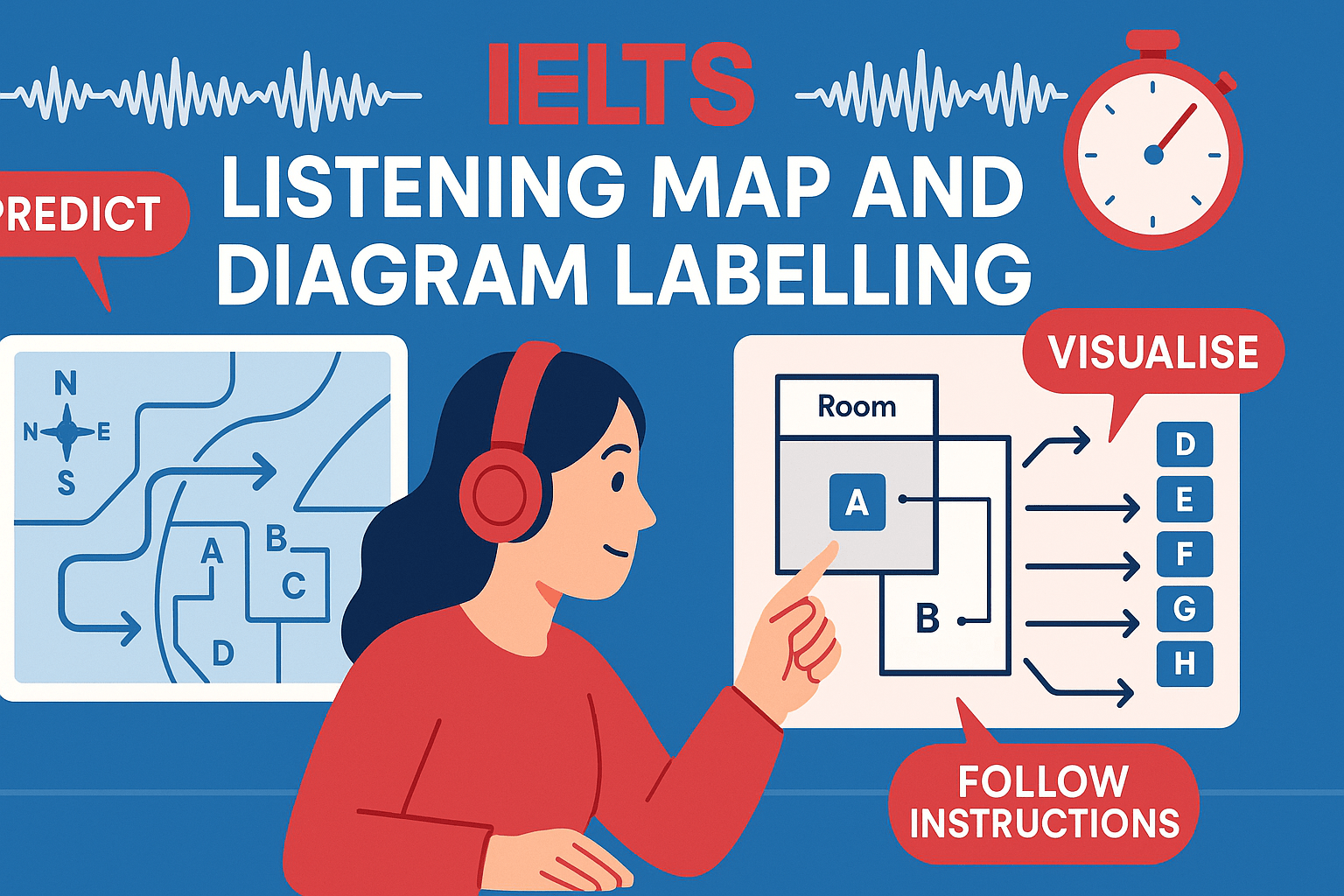- Why Band Descriptors Matter in IELTS Listening
- The Most Common IELTS Listening Mistakes (and How to Fix Them)
- What Are IELTS Listening Band Descriptors, Really?
- How I Help Students Align with High Band Descriptors
- Want the Full System? Start with the Core Guide
- Recommended Resources
- Frequently Asked Questions (FAQ)
- Final Thoughts
As an international IELTS teacher working with students across the globe, I’ve seen one pattern over and over again: students often underestimate how their everyday listening habits — and subtle mistakes — impact their band scores. Understanding the IELTS Listening band descriptors is not just about knowing what examiners look for; it’s about avoiding the small, costly errors that can drag your score down.
In this guide, I’ll break down the most common listening mistakes I’ve seen students make, explain exactly how band descriptors affect your results, and show you how to align your skills with what the exam demands. This post acts as a central resource — throughout, I’ll also link to more focused guides and strategies I’ve used with my own students.
Why Band Descriptors Matter in IELTS Listening
The IELTS Listening test may feel purely objective — right or wrong answers — but your final band score is calculated using a raw-to-band conversion table, which reflects your consistency, accuracy, and comprehension level.
What many learners don’t realise is how easily errors stack up. One spelling mistake. One number misheard. One instruction ignored. These “minor” mistakes can snowball into band drops.
I’ve had students go from Band 5.5 to Band 7.5 not by improving vocabulary, but simply by correcting recurring listening habits and understanding why they were losing marks.
If you’re aiming for Band 7–9, you need to think like an examiner — and that means getting familiar with the specific IELTS Listening band descriptors.
➡️ I break down these descriptors clearly in this separate post: IELTS Listening Band Descriptors Explained
The Most Common IELTS Listening Mistakes (and How to Fix Them)
Over the years, here are the five most frequent listening mistakes I’ve seen students make — and the simple, proven strategies I’ve used to help them fix them:
1. Misreading Instructions
This is a silent killer. Many learners rush the question without checking key details like:
- “Write NO MORE THAN TWO WORDS”
- “Use a number”
- “Answer in a date format”
Failing to follow instructions leads to automatic errors, even if you understood the audio perfectly.
✅ One of my students, Amina, consistently scored Band 6. When we reviewed her practice papers, we realised half her mistakes came from ignoring word limits. Once she trained herself to slow down and read every instruction, her score jumped to Band 7.
📘 I go deeper into this in my guide to IELTS Listening Common Mistakes, with practical examples.
2. Spelling Errors
Yes — spelling absolutely matters in IELTS Listening. If you hear the right word but spell it wrong, it’s marked incorrect.
What works:
- Keep a personal spelling list of words you consistently miss.
- Practice audio dictation using past tests or online samples.
- Review common IELTS topics like places, jobs, and academic vocabulary.
Some of my students use Google Docs’ voice typing to listen and type at the same time — it’s a great way to train spelling reflexively.
3. Losing Focus Mid-Section
Unlike reading or writing, you don’t get a second chance with Listening. If your mind drifts for just five seconds, you might miss multiple answers.
What helps:
- Practice section-by-section listening — pause, summarise, predict.
- Use finger tracking on the answer sheet to stay anchored.
- Build stamina with full test simulations, not just short tasks.
4. Failing to Predict
The best listeners predict the type of information they’re about to hear: a number, a name, a location, etc.
When students don’t prepare mentally, they miss cues even if they understand the words.
✅ A learner of mine used to miss map questions repeatedly. We worked on previewing types of locations before the audio — cafes, libraries, parks. This small shift helped him stay alert and score Band 8 on that section.
5. Getting Distracted by Distractors
Cambridge loves distractors: the speaker might say one answer… then correct it mid-sentence.
For example:
“We were planning to meet at 7… actually, let’s say 7:30 instead.”
You must train yourself to wait until the speaker finishes the idea before locking in an answer.
🧠 This is where strong comprehension and attention to detail — two key IELTS Listening band descriptors — come into play.
What Are IELTS Listening Band Descriptors, Really?
You won’t find official “band descriptors” for Listening like you do for Speaking and Writing, but the scoring is still based on descriptive criteria that align with band levels.
Here’s what examiners and the scoring system reward:
| Band | What It Reflects |
|---|---|
| 9 | Near-perfect accuracy (1 or no mistakes), full comprehension |
| 8 | Very few mistakes, occasional slips but no pattern |
| 7 | Good comprehension with occasional errors from carelessness or unfamiliarity |
| 6 | Several mistakes, possibly due to speed or vocabulary gaps |
| 5 | Regular breakdowns in understanding, poor prediction or spelling issues |
When you understand how mistakes link to these scores, everything clicks. Suddenly, fixing your spelling isn’t just about accuracy — it’s about moving from Band 6 to Band 7.
📘 Want a deeper dive? I explain each band score in detail in this breakdown
How I Help Students Align with High Band Descriptors
Here’s what I focus on when helping students push into the Band 7–9 range:
- Error Logs: Every student keeps a weekly log of their listening mistakes — we analyse patterns (e.g., spelling? speed? word limit?).
- Micro Practice: We isolate one weakness — like map labeling or multiple choice — and repeat it until it’s automatic.
- Timed Tests: We mimic test conditions often. You can’t fix real-time listening under stress unless you practice under stress.
One student, Arjun, hit Band 8.5 in Listening using this exact system. His weak area? Sentence completion with three-word limits. We drilled that daily for two weeks.
Want the Full System? Start with the Core Guide
If you’re aiming for Band 7, 8 or even 9, I’ve outlined the complete roadmap to IELTS Listening success in this Band 7–9 Guide. It includes:
- Test format
- Skills like prediction, note-taking, paraphrasing
- Practice planning and daily routines
It’s the perfect complement to this post, and I highly recommend reading it alongside this one.
Recommended Resources
🎓 Ready to go deeper?
- Book your test through British Council or IDP
- Check the official test rules on IELTS.org
- Explore IELTS Premium Courses if you want step-by-step video support
Frequently Asked Questions (FAQ)
Q: Do small spelling mistakes really affect my band score?
Yes — in Listening, a misspelled word is marked incorrect, which lowers your raw score and thus your final band.
Q: What if I miss one section completely — can I still get Band 7?
It’s possible, but difficult. You’ll need very high accuracy in the remaining sections to balance it out. That’s why section-specific practice is essential.
Q: How many wrong answers can I make for Band 7?
It varies slightly, but typically 30 correct answers out of 40 is the threshold for Band 7.
Q: Should I skip difficult questions and come back?
No — in Listening, the audio doesn’t pause or repeat. If you miss it, it’s gone. Train yourself to move on mentally so you stay focused for the next one.
Final Thoughts
IELTS Listening success isn’t about being a “good listener” in general. It’s about being a strategic listener under pressure, who knows the band descriptors, understands common traps, and practices with purpose.
If you take nothing else from this guide, remember this: fixing small, repeated mistakes can be the fastest way to unlock a higher score.
Explore the linked resources in this post, and if you’re just getting started, read my complete IELTS Listening for Band 7–9 Guide next. You’re closer than you think.






One Response